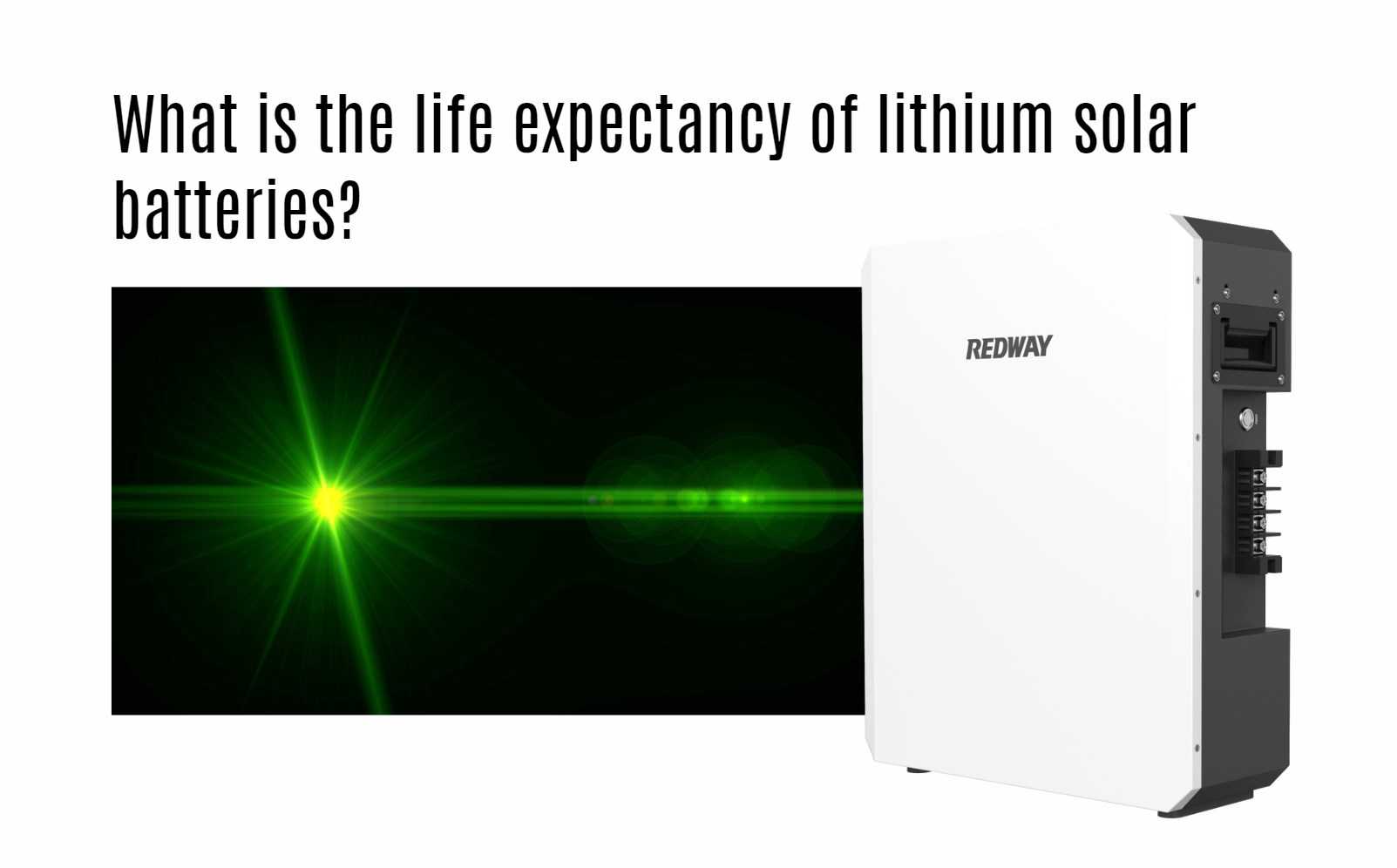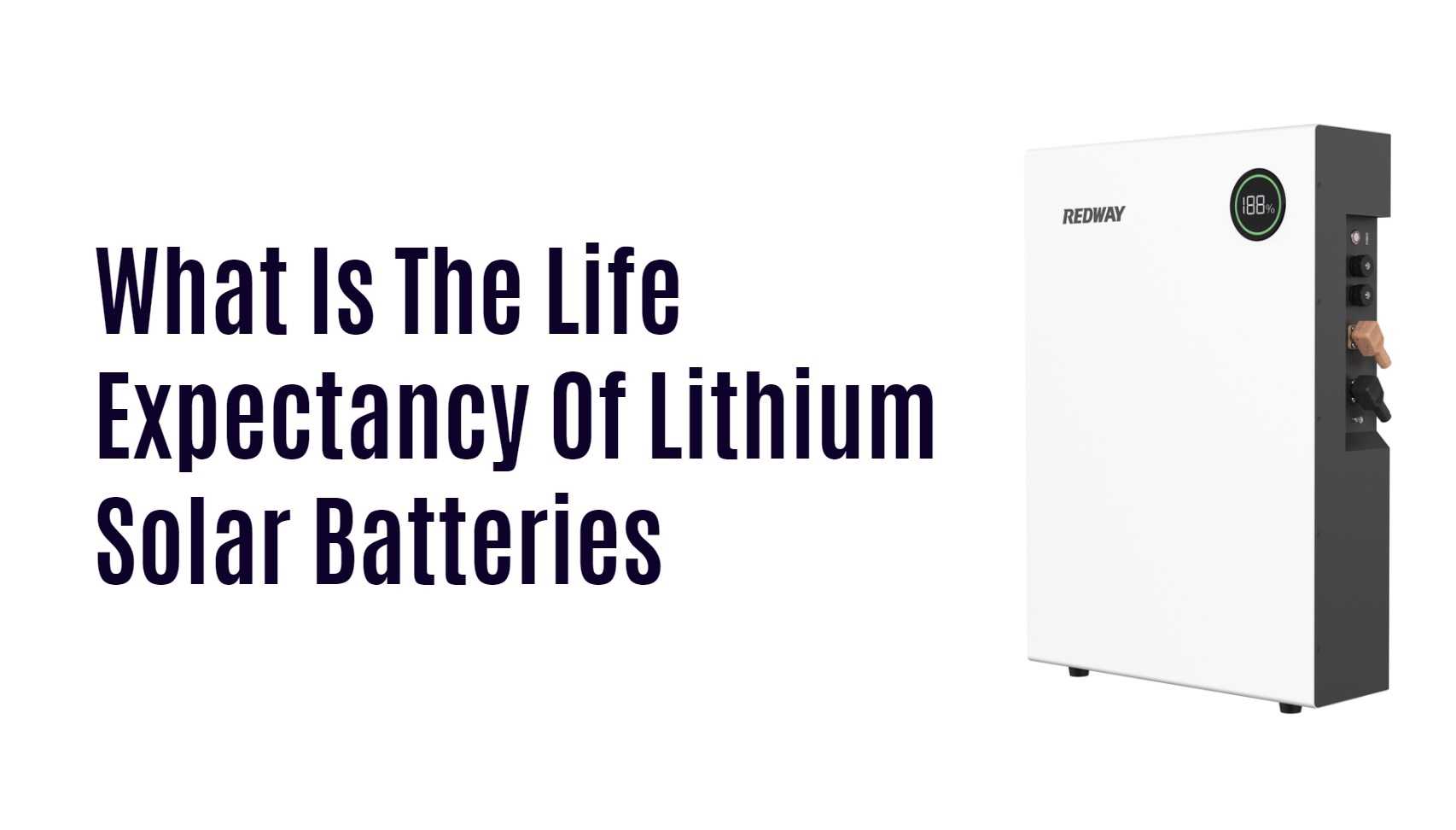- Factors Affecting Life Expectancy:
- Size, brand, quality, and usage patterns impact the life expectancy of lithium solar batteries.
- High-quality lithium-ion solar batteries typically last between ten to twenty years.
- Proper maintenance, including following manufacturer recommendations for charging and discharging cycles, is crucial to extend the battery’s lifespan.
- Benefits of Lithium Solar Batteries:
- Longer lifespan compared to traditional lead-acid batteries.
- Higher energy density and faster charging times.
- Lower maintenance requirements and reduced environmental impact.
- Maximizing Battery Lifespan:
- Regularly clean the battery and ensure it is stored in a temperature-controlled environment.
- Limit the depth of discharge (DoD) to around 50-80% to avoid over-discharging.
- Use a compatible battery charger that charges the battery at the recommended rate.
- Invest in a high-quality lithium solar battery from a reputable manufacturer.
What are lithium batteries?
Lithium batteries are a type of rechargeable battery that use lithium ions to move from the anode (positive electrode) to the cathode (negative electrode) during charging and discharging. They come in many shapes and sizes, from tiny coin cells used in watches to large batteries used in electric cars.
Lithium batteries are long-life, lightweight, and high-power batteries that are commonly used in various devices such as watches, medical devices, camera flashes, electronic car keys, alarm systems, and more. They are typically in the shape of a coin and contain lithium as the power source. Lithium batteries can provide high energy density and maintain a higher voltage for a longer period compared to alkaline batteries.
They are available in different sizes, indicated by a code such as CR1216, CR2012, or CR2450. Lithium batteries can be non-rechargeable or rechargeable, with the latter being used in phones, portable computers, and other electronic devices. Lithium batteries have various chemistries, including lithium-manganese dioxide, lithium-carbon monofluoride, lithium-thionyl chloride, lithium-sulfur dioxide, and more. Each chemistry has its own characteristics and applications. It’s important to note that lithium batteries should be handled and disposed of properly due to their potential hazards.
What are solar batteries?
- Types of Solar Batteries:
- Lead-acid batteries: cost-effective and reliable, suitable for most home solar setups.
- Lithium-ion batteries: higher energy density, longer lifespan, and more efficient, but come with a higher upfront cost.
- Nickel-cadmium batteries: durable and suitable for extreme temperatures, commonly used in industrial applications.
- Flow batteries: offer high efficiency and a depth of discharge of 100%, but are more suitable for larger-scale applications.
- Benefits of Solar Batteries:
- Energy independence: Store excess energy for use during periods of low sunlight or power outages.
- Electric bill savings: Reduce reliance on the grid and save money on energy costs.
- Reduced carbon footprint: Minimize the use of fossil fuels and contribute to a more sustainable energy solution.
- Considerations for Choosing a Solar Battery:
- Battery type and material: Consider the advantages and disadvantages of each type.
- Battery life: Evaluate the expected lifespan and maintenance requirements of the battery.
- Depth of discharge: Understand how much energy can be used before recharging the battery.
- Efficiency: Consider the energy loss during transfer and storage when choosing a battery.
- Cost: Balance upfront cost with long-term savings and battery lifespan.
- Warranty: Look for extended warranties and performance guarantees for added peace of mind.
What is the life expectancy of lithium solar batteries?
Lithium solar batteries are a popular choice for many people who want to use renewable energy to power their homes or businesses. One of the primary advantages of these batteries is their long life expectancy, which makes them an excellent investment for anyone looking to make a sustainable and cost-effective choice.
The typical lifespan of a lithium solar battery can vary depending on several factors such as its size, brand, quality and usage patterns. However, in general, most high-quality lithium-ion solar batteries have a lifespan ranging from ten to twenty years before they require replacement.
It’s important to understand that the longevity of your battery will depend on how well you take care of it. Regular maintenance is essential if you want your battery to last as long as possible. It’s also crucial that you follow manufacturer recommendations when it comes to charging and discharging cycles because misuse can significantly reduce the life expectancy of your battery.
If you invest in a high-quality lithium-ion solar battery and follow proper maintenance practices regularly, then it should remain operational for many years without any performance issues or need for replacements.

Solar battery benefits
Solar batteries are an essential component of solar power systems. They store the energy generated by your solar panels during the day, which you can then use at night when there’s no sunlight. But what are some of the benefits of using a solar battery?
Firstly, having a solar battery means that you’ll have access to electricity even during power outages or blackouts. This is particularly useful if you live in an area prone to extreme weather conditions.
Secondly, using a solar battery can help reduce your reliance on the grid and lower your electricity bills. By storing excess energy from your solar panels instead of exporting it back to the grid, you can use this stored energy later and avoid paying for electricity from your utility company.
Thirdly, installing a solar battery may also increase the value of your property as more people become aware of its importance in reducing carbon emissions and saving money on their utilities bills.
Investing in a high-quality lithium ion-powered storage system will enable homeowners and businesses alike to enjoy uninterrupted power supply while cutting down costs associated with traditional sources like fossil fuels!
How to extend the life of your solar battery
-
Optimal Temperature Conditions: Keep your solar battery in a well-insulated storage area with a temperature range of 60°F to 70°F (15°C to 25°C). This helps prevent extreme temperature fluctuations that can impact the battery’s performance.
-
Regular Monitoring and Maintenance: Monitor voltage, state of charge, current, and temperature regularly. Clean the battery terminals to prevent corrosion and ensure proper connections. Regular maintenance helps identify potential issues and keeps the battery in optimal condition.
-
Avoid Overcharging and Deep Discharging: Use a solar charge controller to prevent overcharging and set up a low-voltage disconnect system to avoid deep discharging. These practices help maintain the battery’s health and extend its lifespan.
-
Invest in a High-Quality Solar Battery: Choose a high-quality battery that offers better performance, durability, and longer warranties. Quality batteries tend to last longer and provide reliable energy storage.
-
Professional Installation and Services: Opt for professional installation to ensure proper setup and maintenance of your solar battery system. Professionals can address any issues and provide guidance on maximizing the lifespan of your solar battery.
Conclusion
To sum up, lithium solar batteries are a reliable and efficient energy storage solution for off-grid living. With a lifespan of over 10 years and low maintenance requirements, they provide an eco-friendly alternative to traditional backup generators.
To extend the life of your lithium solar battery, it’s important to follow proper charging and discharging procedures while avoiding extreme temperatures. Additionally, regular cleaning and inspections can help identify any issues before they become major problems.
Investing in a high-quality lithium solar battery is not only environmentally responsible but also financially savvy in the long run. By harnessing the power of renewable energy with this technology, you can enjoy reliable electricity without relying on fossil fuels or grid connections.
So if you’re considering going off-grid or simply want to reduce your carbon footprint at home or work, consider installing a lithium solar battery system today!
Redway Power 48V Series Lithium Iron Phosphate Battery LiFePO4 battery (LFP) offers Deep Cycle Reliability, Safety, 6000 times Long life and the best High/Low Temperature Performance.

#post_seo_title





